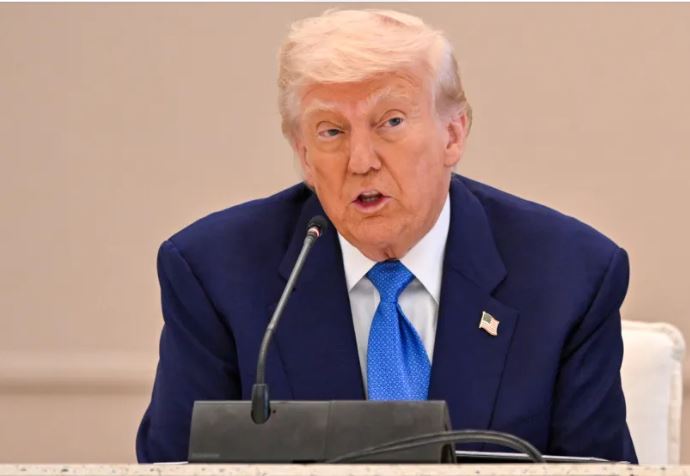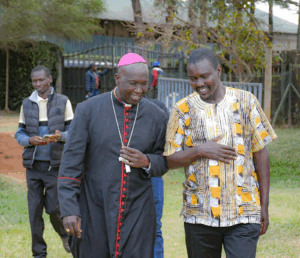Trump Insists He Has ‘Duty’ to Sue BBC Over Altered Speech Clip
Downing Street has tried to distance itself from the row, describing it as a “matter for the BBC.”

U S President Donald Trump. /courtesy
By Ruth Sang
US President Donald Trump has said that he has an “obligation” to take a legal action against the BBC over what he called a misleading edit of his January 6, 2021, speech in the BBC Panorama documentary. In an interview with Fox News, Trump accused the broadcaster of intentionally distorting his remarks in a way that “defrauded” the public and misrepresented his intentions.
This is the first time the president has spoken publicly on the issue since his lawyers formally notified the BBC of his intention to sue for $1 billion – approximately £759 million – in damages. The letter reportedly calls on the corporation to retract the documentary, issue a public apology, and compensate him for reputational harm. BBC chair Samir Shah has previously admitted to an “error of judgment” over the editing of the footage.
In an interview aired on The Ingraham Angle, Trump insisted the broadcaster had “butchered” his words. “They actually changed my January 6 speech, which was a beautiful and calming speech, and made it sound radical,” he said. When pressed on whether he would proceed with the lawsuit, he replied, “I think I have an obligation to do it because you can’t let people get away with that.”
The segment on the BBC was taped Monday, but Fox News didn’t air it until late Tuesday evening. According to reports, the BBC received the legal notice on Sunday, giving the corporation until Friday at 22:00 GMT (17:00 EST) to respond. In a short statement, the BBC confirmed it would reply “in due course.”
The controversy lies in a Panorama documentary that aired in November 2024, just a number of days in front of the US presidential election. The program included a clip of Trump’s speech in 2021 that critics say was edited to misrepresent his tone and message. The issue gained renewed attention after the Daily Telegraph published a leaked internal BBC memo from Michael Prescott, a former independent adviser to the broadcaster’s editorial standards committee. The memo said the edit might have unfairly implied that Trump had explicitly incited the Capitol riot.
In the original, Trump told his supporters: “We’re going to walk down to the Capitol, and we’re going to cheer on our brave senators and congressmen and women.” In the Panorama version, he sounded as though he’d said: “We’re going to walk down to the Capitol. and I’ll be there with you. And we fight. We fight like hell.” While Trump did use the word “fight” or “fighting” numerous times throughout the speech, critics say the documentary’s selective editing altered the tone.
The fallout has rattled the BBC, with the resignation of its Director-General, Tim Davie, and the Head of News, Deborah Turness. Both of the outgoing executives have defended the broader integrity of the organization while accepting fault. “We have made some mistakes that have cost us, but the BBC does great work that speaks louder than any criticism,” said Davie in a staff meeting on Tuesday.
Downing Street has tried to distance itself from the row, describing it as a “matter for the BBC.” One of the prime minister’s spokespeople said the government would not comment on ongoing legal matters.
The row comes at a sensitive moment for the BBC ahead of the 2027 renewal of its royal charter, which sets the terms for the publicly-funded broadcaster’s financing and governance. Culture Secretary Lisa Nandy said the forthcoming negotiations should “renew the BBC’s mission for the modern age” with greater accountability. She warned lawmakers not to conflate “legitimate editorial concerns” with attacks that “undermine” the broadcaster as a national institution. Meanwhile, Parliament’s culture select committee intends to summon senior BBC figures, including Shah, Sir Robbie Gibb, Caroline Thomson, and Prescott, to give evidence on the issue. As Trump proceeds with his possible lawsuit, the case is set to reopen debates about media fairness, political bias, and accountability in both the US and the UK.







